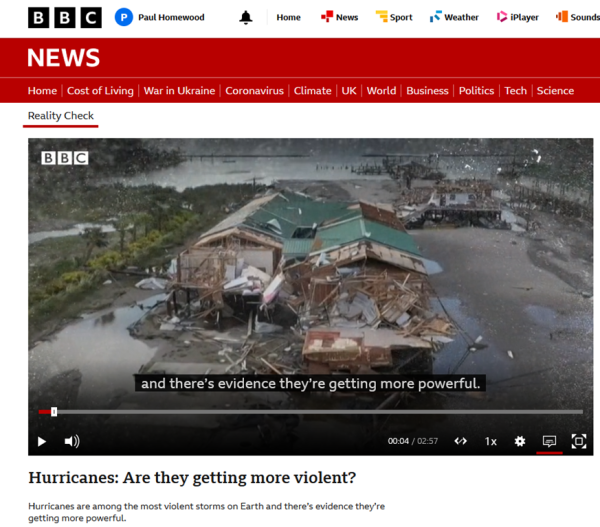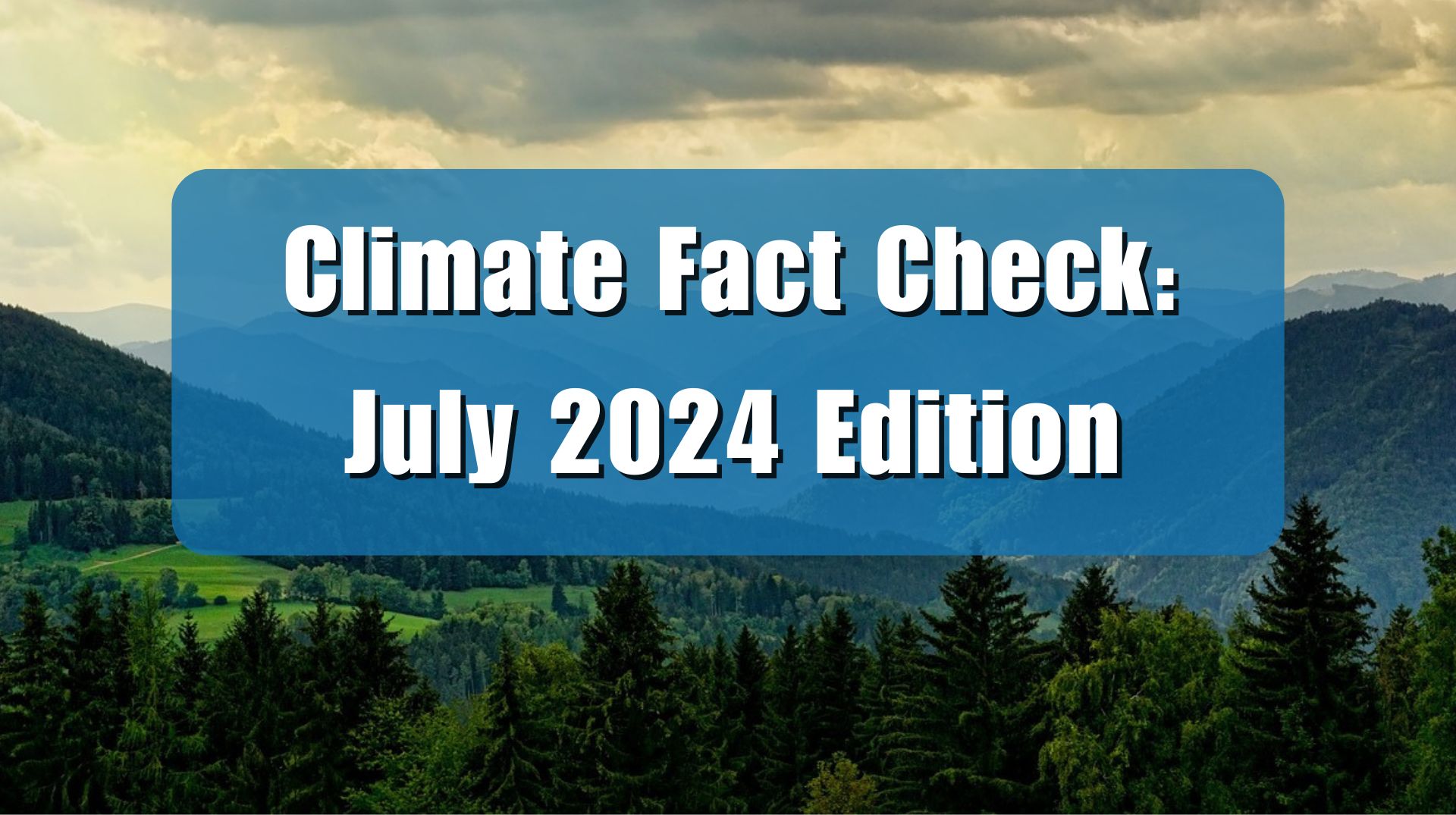Guest essay by Paul Homewood
Originally from his website: Fact Checking BBC’s Hurricane “Reality” Check
The BBC’s Executive Complaints Unit have now responded to my complaint about their “Reality Check” video, Hurricanes: Are they getting more violent?
The video falsely claimed that “there’s evidence hurricanes are getting more powerful”. Unsurprisingly they have rejected my complaint, without ever actually addressing the facts I presented.
I won’t go into all of the graphs and documentation that I based my complaint on – you can read them here. But, I will show this one, which summarises all major hurricanes world wide. There is no evidence whatsoever to substantiate the BBC’s claim:
http://tropical.atmos.colostate.edu/Realtime/index.php?arch&loc=global
NOAA confirms that they can find no trend in Atlantic major hurricanes:
 Source:NOAA GFDL article on Global Warming and Hurricanes
Source:NOAA GFDL article on Global Warming and Hurricanes
And even the IPCC can find no evidence of long term trends in “intensity-based metrics”
IPCC AR6
It really should be an open and shut case – the BBC were wrong.
The ECU’s response dismissing my complaint mainly consists of “projections” and “computer models”, neither of which are evidence of anything. They also refer to IPCC claims that rapid intensification events have become more frequent. Whether this is true or not, the issue is irrelevant, if the frequency/ratio of major hurricanes has not increased.
The only actual data they were able to provide to back up their claim was a 2016 study of typhoons in the Western Pacific, which according to the BBC said:
“over the past 37 years, typhoons that strike East and Southeast Asia have intensified by 12–15%, with the proportion of storms of categories 4 and 5 having doubled or even tripled”.
Which is all well and good, except the data record back to 1951 shows a marked dip in super typhoons in the 1970s and 80s, but no long term trend:
https://www.jma.go.jp/jma/jma-eng/jma-center/rsmc-hp-pub-eg/climatology.html
In any event, given that the global frequency of major hurricanes has not increased since 1980, this increase in typhoon activity must be matched by reduced activity elsewhere.
Even the IPCC did not find it worth mentioning that paper, instead merely highlighting “substantial inter-decadal variations in the Western Pacific”:
IPCC AR6
The ECU finishes by saying:
Except that my complaint was not about what “scientists predicted”, it was the claim that “there is evidence that hurricanes are getting more powerful! They have not addressed this at all.
Running out of names
I also complained about the statement in the Reality Check that “the hurricane season has been so busy, they’ve used up the list [of names] and had to start again”
I pointed out that the reason why more names are needed nowadays is the fact that we can observe many storms with the help of satellites, which we could not do in the past, along with the fact that many extra-tropical storms are now named, which did not use to be the practice. It has nothing to do with more hurricanes becoming more frequent.
The ECU did not even bother to address these issues, and doubled down by pointing out that “the number of named storms had risen in the last 50 years”
Apparently viewers would not have been misled by the misinformation, despite the fact that most will now be convinced that hurricanes are becoming more frequent, when they are not!
The handling of this complaint sums up in a nutshell everything that is corrupt about the BBC’s complaints procedures. The whole system is crooked, and will continue to be until it is put in the hands of a genuinely independent body.























“Scientists” (mostly modelers) have been predicting gloom and doom in one form or another (ice ages ahead in the ’70s, now global warming) and precisely none of those predictions have proven to have any merit. The models on which they are based have demonstrated no predictive skill whatever, and have not verified against observations, and therefore should never serve as a basis for forecasting and/or decision making.